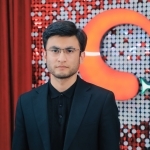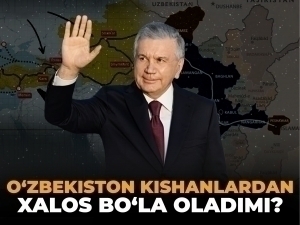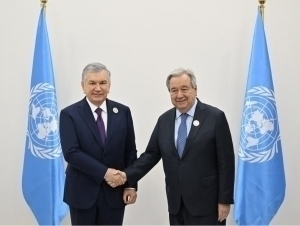Why the world needs Central Asia: Insights from the “Central Asia – European Union” Summit
Review
−
06 April 2025 12156 8 minutes
On April 3–4, the ancient city of Samarkand appeared to return to its centuries-old glory. The city hosted the first-ever “Central Asia – European Union” summit, which captured global attention. It can confidently be said that relations between Europe and Central Asia have entered an entirely new phase. In particular, ties between Central Asia and the European Union have now reached a strategic level. Below, we delve into the key moments of the summit and the climate forum that followed.
To participate in the EU–Central Asia summit and the climate forum held in Samarkand, President of the European Council António Costa, and the President of the European Commission Ursula von der Leyen arrived in the city on April 2. The following day, April 3, European leaders toured historical sites around Samarkand.
That same day, the Congress Center became the setting for several important meetings and agreements. President Shavkat Mirziyoyev met with Odile Renaud-Basso, President of the European Bank for Reconstruction and Development. He then held talks with António Costa and Ursula von der Leyen. During their discussions, the leaders exchanged views on supporting the socio-economic development of Afghanistan.
European leaders extended an invitation to President Mirziyoyev to visit Brussels later this year. Following the talks, a significant agreement was signed in the presence of the leaders to open a regional office of the European Investment Bank in Tashkent. Afterward, the leaders planted two oak trees along the Congress Center Avenue. Ursula von der Leyen noted that she would check how her tree was growing during her next visit to Samarkand.
Later, President Mirziyoyev guided the European leaders through the “Immortal City” historical and ethnographic complex at the Samarkand International Tourism Center. Meanwhile, the presidents of the Central Asian countries began arriving in Samarkand one by one.
The main part of the summit took place on April 4. European Council President António Costa, European Commission President Ursula von der Leyen, President of Kazakhstan Kassym-Jomart Tokayev, President of the Kyrgyz Republic Sadyr Japarov, President of Tajikistan Emomali Rahmon, and President of Turkmenistan Serdar Berdimuhamedov were welcomed in turn by Uzbekistan’s President Shavkat Mirziyoyev at the Congress Center. After a welcoming ceremony and group photo, the heads of delegations proceeded to the summit hall. Several significant proposals were discussed during the session. Notably, President Mirziyoyev expressed support for peaceful negotiations to resolve the situation in Ukraine and emphasized that the international community had failed to fully recognize all the threats emanating from Afghanistan.
President Mirziyoyev stated that it is essential to involve Afghanistan more actively in regional economic processes, particularly through investment and infrastructure projects and efforts to restore the social sector. He also underlined that cooperation in combating shared security challenges—including terrorism, extremism, radicalism, cybercrime, drug trafficking, and illegal migration—is becoming increasingly vital.
European Council President António Costa also expressed support for peace efforts in Ukraine and the EU’s intention to contribute to global stability alongside Central Asian countries. EU President Ursula von der Leyen opened her remarks by recalling the famous traveler and historian Ibn Battuta’s writings on Samarkand, saying: “We, Europeans, want to be with you in a new era in your thousand-year history.” She announced the launch of a "new era of strategic partnership" between Europe and Central Asia. Von der Leyen outlined four priority areas for EU cooperation with the region:
- Transport corridors – The EU is ready to support Trans-Caspian transport routes, particularly those passing through Uzbekistan.
- Critical raw materials – The EU will invest in projects for extraction, processing, and workforce training in Central Asia.
- Green energy – The EU will fund clean energy projects, including wind, solar, and hydropower.
- Global digital infrastructure – The EU aims to support digital sovereignty by developing independent internet systems in Central Asia, including satellite internet.
Kazakh President Kassym-Jomart Tokayev, echoing President Mirziyoyev, voiced support for efforts toward peace in Ukraine. He expressed deep understanding of the conflict’s complexities and hope for a positive resolution. He also emphasized that Kazakhstan’s planned nuclear power plant is meant to ensure national energy security. Kyrgyz President Sadyr Japarov highlighted the trilateral border agreement signed five days earlier by Uzbekistan, Kyrgyzstan, and Tajikistan, calling it a vital step toward regional stability. He welcomed the EU’s €10 billion initiative for transport development.
Tajik President Emomali Rahmon stressed that Central Asia’s security and stability are directly linked to the situation in Afghanistan, warning against the spread of instability from the neighboring country. He also announced Tajikistan’s plan to transition to 100% green energy by 2037. Turkmenistan’s President, Serdar Berdimuhamedov, offered European access to Turkmen raw materials, oil, and gas products and called for joint action against information warfare and cyberattacks.
The summit concluded with the adoption of a joint declaration. The document stated that the leaders of Kazakhstan, Kyrgyzstan, Tajikistan, Turkmenistan, Uzbekistan, and the European Union had agreed to elevate their relationship to a strategic partnership, reaffirming their commitment to deeper cooperation amid shifting global and regional dynamics.
“We reaffirmed that all States should refrain from the use or threat of force in their relations with one another, abide by international humanitarian law, and resolve conflicts peacefully,” the declaration read.
Participants also pledged to uphold these principles, particularly the sovereignty and territorial integrity of all states in international and regional forums, and to avoid actions that contradict them. They reaffirmed their commitment to a stable and prosperous Afghanistan, governed inclusively and in full respect of human rights—especially those of women, girls, and ethnic and religious minorities. The declaration also emphasized the importance of Afghanistan honoring peace in its internal affairs, its relations with neighboring countries, and its international obligations. Another key point was the agreement to maintain communication to prevent the circumvention of sanctions and to cooperate in preventing the re-export of high-priority goods. Though unstated, it was clear which sanctions were being referenced.
In addition to the summit, April 4 also saw the hosting of the Samarkand International Climate Forum. Speaking at the forum, President Mirziyoyev warned that by 2040, Central Asian countries will face severe water shortages due to decreasing flows in the Amu Darya and Syr Darya rivers. He highlighted ongoing efforts to line irrigation canals with concrete, develop an industrial base for water-saving technologies, and apply them to nearly half of the region’s irrigated lands—approximately 2 million hectares. These efforts reportedly saved 8 billion cubic meters of water last year. Mirziyoyev called for regional cooperation in scaling up water-saving technologies and launching a joint regional initiative. At the start of the event, his book, Green Development Path for a New Uzbekistan, which outlines climate and clean energy goals, received praise.
UN Secretary-General António Guterres addressed the forum virtually, and other leaders also delivered speeches. European Commission President Ursula von der Leyen urged a serious approach to climate challenges. Speaking in Samarkand, she warned that future generations will never forgive today’s leaders if strong action on climate is not taken.
Following the summit and forum, European Council President António Costa and European Commission President Ursula von der Leyen held a press conference and answered questions from the media.
Asked how the EU plans to convince Central Asia that it is a better partner than China and Russia, von der Leyen responded:
“Russia has long shown that it cannot be a reliable partner. In contrast, the European Union has demonstrated its commitment to sustainable, trustworthy cooperation. EU projects are structured so that our partners benefit alongside us. Unlike others, the EU takes a different approach, especially regarding critical raw materials. In the past, China and Russia would extract materials, transport them for processing, and keep the added value in their own countries. We believe in creating value locally. This generates jobs and keeps the value chain within the country of origin. We think this approach benefits both our partners and the EU in the long term.”
European Council President António Costa added:
“The EU and the five Central Asian countries share the same views on the importance of multilateralism and a rules-based international order. The alternative to such an order is chaos—which we must avoid. International law must prevail: peace, territorial integrity, and respect for recognized borders. These are our shared values, tested and proven over the past three years. That is why I believe we must continue working together to ensure a just and lasting peace in Ukraine. Central Asia is a historic and geographic bridge—between East and West, the EU and China, and the EU and Russia. This is the added value of the unique relations we are building with Central Asia.”
On April 5, participants of the historic summit in Samarkand began returning home. The presidents of Central Asia departed for their respective countries. European Council President António Costa and European Commission President Ursula von der Leyen also concluded their visits to Uzbekistan. The high-ranking guests were seen off at Samarkand International Airport by Uzbekistan’s Prime Minister Abdulla Aripov and other officials.
Live
All



